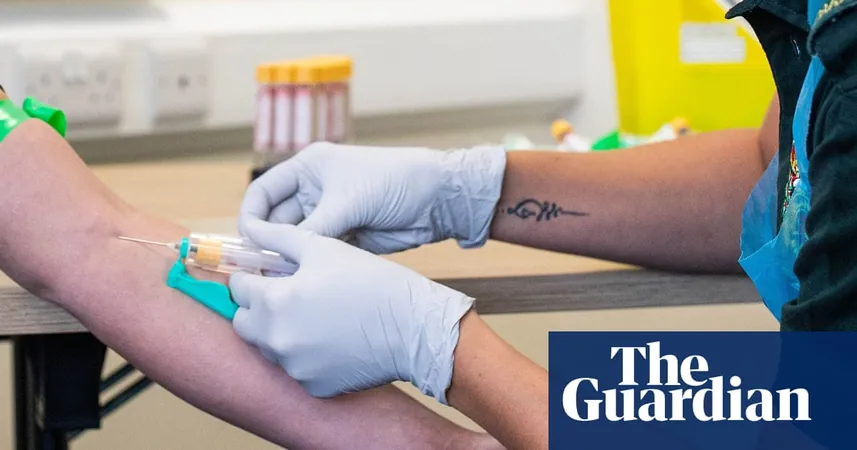
Revolutionary Blood Test Could Change the Game for Ovarian Cancer Detection
2025-08-25
Author: Wei Ling
A Breakthrough in Early Detection
In a groundbreaking development, scientists have unveiled a remarkable blood test that may revolutionize early detection of ovarian cancer. This innovative tool could dramatically enhance survival rates for the 300,000 women diagnosed globally each year, particularly those over 50.
Spotting the Silent Killer
Ovarian cancer often evades early diagnosis due to vague symptoms like bloating and pelvic pain, which many women dismiss. Conventional diagnostic methods, including ultrasounds and biopsies, often come up short, leading to late-stage diagnoses.
How It Works: The Science Behind the Test
The newly trialled blood test focuses on identifying specific blood markers associated with ovarian cancer. Researchers from the UK and US harness machine learning technology to detect subtle patterns in the biomarkers that human eyes might miss.
The Cancer's Distinct Signature
Ovarian cancer cells release microscopic fragments into the bloodstream, carrying unique lipid and protein combinations that act like a biological fingerprint. The test harnesses an advanced algorithm trained on thousands of patient samples to accurately identify these signatures.
Unprecedented Accuracy Rates
According to Alex Fisher, COO and co-founder of AOA Dx, the organization behind the test, it can now spot ovarian cancer at its earliest stages with remarkable accuracy. In trials involving 832 samples, the test achieved a staggering 93% accuracy in detecting various stages of the disease and an impressive 91% for early-stage cases.
Expert Endorsements
Dr. Abigail McElhinny, the chief science officer of AOA Dx, highlighted the tool’s potential, stating, "By integrating multiple biomarker types with machine learning, we aim to improve early detection, enhancing patient outcomes and lowering healthcare costs."
Looking Ahead: The Future of Ovarian Cancer Diagnosis
This significant study, co-led by the universities of Manchester and Colorado, was published in the esteemed Cancer Research Communications journal. Emma Crosbie, a prominent professor at the University of Manchester, emphasizes the test's potential to transform patient care and urges further research to validate its effectiveness in healthcare systems.
Why This Matters Now More Than Ever
As ovarian cancer remains one of the leading causes of cancer-related deaths among women, advancements like this blood test could be the key to saving lives. The shift towards more effective early detection methods is crucial in the fight against this silent killer.

 Brasil (PT)
Brasil (PT)
 Canada (EN)
Canada (EN)
 Chile (ES)
Chile (ES)
 Česko (CS)
Česko (CS)
 대한민국 (KO)
대한민국 (KO)
 España (ES)
España (ES)
 France (FR)
France (FR)
 Hong Kong (EN)
Hong Kong (EN)
 Italia (IT)
Italia (IT)
 日本 (JA)
日本 (JA)
 Magyarország (HU)
Magyarország (HU)
 Norge (NO)
Norge (NO)
 Polska (PL)
Polska (PL)
 Schweiz (DE)
Schweiz (DE)
 Singapore (EN)
Singapore (EN)
 Sverige (SV)
Sverige (SV)
 Suomi (FI)
Suomi (FI)
 Türkiye (TR)
Türkiye (TR)
 الإمارات العربية المتحدة (AR)
الإمارات العربية المتحدة (AR)